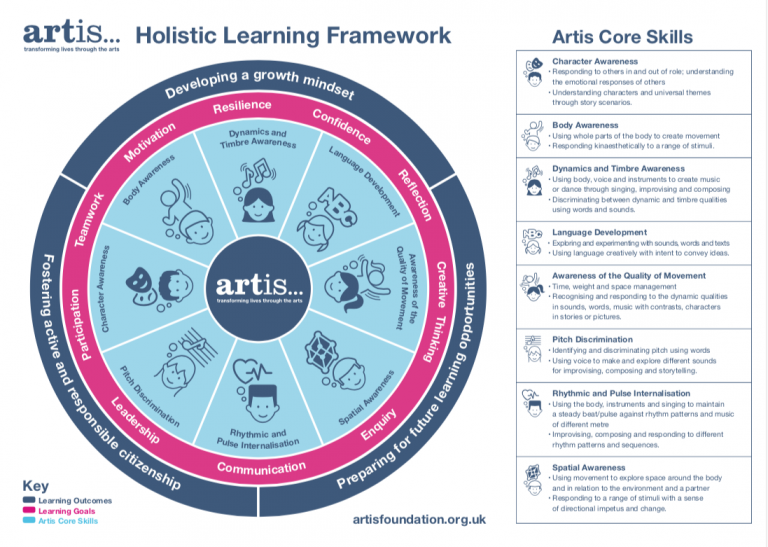Fundraising for your school

Fundraising for your school
Schools are in the midst of a budget crisis with funding per pupil in England having fallen by 8% between 2010 and 2018. In addition, 66,000 more children attend in state schools this year than the year before but with 5,000 fewer teachers (Institute for Fiscal Studies, 2018).
Within the context of these funding cuts, more schools are looking further afield to other income streams for alternative sources of funding for necessary provisions. These streams include grants, local businesses and through their school community and alumni.
If you are looking for grant funding for your school then here are some of our tips for funding applications:
First things first, who’s going to do the work?
Cash-strapped schools are unlikely to be able to employ a full or even part-time fundraiser, so you need to get savvy about who is going to be able to do the work.
Finding a teacher, a member of SLT or support staff to do the work is going to be tricky, particularly in the context of budget cuts. Some members of staff might be enthusiastic and interested in applying to a pot of funding, particularly if its relevant to their subject or priority areas.
Your school might have a particularly active PTA who would be willing to make a start in building up some momentum around higher level fundraising. Perhaps there are a few governors who could volunteer some extra time to support fundraising applications. Alternatively, you may feel that a dedicated individual who supports fundraising is your best chance at getting those vital extra funds – and just a few successful bids might make that worthwhile.
Engage the staff, PTA and governors in conversations around fundraising and make a plan for a working group to start writing the school’s statement of need.
Making the case
A great place to start your fundraising journey start is by creating a Case for Support, which is an internal “working” document that includes your school’s mission, values, why you need funding and what outcomes you are seeking.
Funders respond well to stats and quantitative data, but make sure you incorporate case studies and first-hand stories to illustrate the need and set your school apart. It’s great to have pupil voice wherever possible so make sure you are keeping note of quotes that support your need in this document.
You want to be prepared so that whenever grant applications open or an opportunity arises, you are ready to go with the information you need to copy and paste into the letter or application form.
What change do you want to see?
Make sure you are really clear about what change you want your funded programme to result in and why this pot of funding is the best way to make it happen. Make sure that the programme has measurable outcomes and talk about these in your bid.
Measuring Impact
Monitoring and evaluation is nothing new to schools so this part of an application should be easy. However, sometimes it can feel like you are stating the obvious, but do include everything you do in terms of tracking provision and proving the impact, whether that’s through verbal teacher feedback, child feedback, questionnaires, measurable outcomes, or through external toolkits. Artis has lots of tools you can use so click here to learn more about how we measure impact.

Tick lots of boxes
More often than not, funders are looking for initiatives that are relevant, sustainable and tick lots of boxes. They want work that is going to have value for money by meeting lots of objectives. They also want there to be multiple beneficiaries, so make it clear how your project would not only benefit your school but also the wider community. Make sure there are multiple areas of impact for your proposed programme, and make sure you ask the provider for as much information as possible about them beforehand.

Who do you know and who can you ask?
There are lots of places that you can access funding. Trusts and foundations, corporate organisations, local businesses, grant-giving charities, wealthy individuals, alumni. But not all of these channels will be appropriate for every school, or every programme.
For some schools, their network of alumni and parents would not be able to contribute financially to school provision whereas in some areas there is an argument that engagement with ex-pupils could prove fruitful. If you are able to reach out to a network of alumni, even for a small donation to an upcoming PTA event, then why not try.
One place that all schools can go to is Grants4Schools, their newsletter is a free subscription service that provides you with a weekly roundup of open grants. The Institute of Physics, the British Science Association and the John Lyon’s Charity are just a few of the funders regularly included in this newsletter.
Your local Arts Council bridge organisations and Cultural Education Partnerships should be getting in touch with you on a regular basis to let you know what provision is available in your area. This may include pots of funding from other sources, or this may include money they have ring fenced for cultural learning for schools in the local area.
Crowdfunding
Rocket Fund is a free, non-profit, crowdfunding platform. They help schools supercharge lessons by fundraising from businesses & the wider community.
Local Community Foundation
All communities will have local foundations set up to support a variety of objectives. Do some research and see what foundations operate in your area, and ask around to see if anyone has any connection to the foundation. Board members and trustees usually come from within the community so one of your governors may have a connection. Make fundraising a priority in your next governors meeting and ensure that everyone thinks about who they might know.
Don’t forget to check your local Tesco, Co-op, ASDA and Morrisons as they have lots of local community fundraising grants as part of their corporate social responsibility objectives (CSR) . They are generally for grants of under £2,000 but would be a great way to fundraise for an Arts Week, some professional development or a mental health and wellbeing programme like Artis Bounce.
Larger Trusts and Foundations
We’ve included a list below of trusts and foundations with large pots of funding available.
- SHINE Trust
- Education Endowment Fund
- Paul Hamlyn Foundation
- John Lyon’s Charity
- Blue Sparks Foundation
- Children in Need
See more tips and available funding pots in our 2014 blog, The key to bid writing success in schools.
Finally, ask for help!
Bids get easier the more practise you get, and don’t be too disheartened by those that don’t come off. Keep going!
If you are looking for funding for Artis provision at your school, then please do get in touch with us and we can provide as much information as possible to help you with your bid. We have lots of valuable stats, testimonials and case studies, as well as an evaluation toolkit that can help with you monitoring and measuring impact.

